Portalblau is a unique festival. A benchmark in the circuit of festivals that take place around the country. Singular for the beauty of the surrounding environment and for the settings where cultural activities take place. All of them are spaces of high value and heritage interest.
The wonderful scenery of the Mar d’en Manassa, a real balcony with views of the Mediterranean; the imposing Fòrum Romà d'Empúries, a historic meeting point, full of life and the nerve center of the Roman city; the Cementiri Mariner, declared a Cultural Asset of National Interest; and the recently renovated Clos del Pastor building, declared a Cultural Asset of Local Interest. All these spaces tell the importance of the historical legacy of which we are heirs. The importance of the landscape as an indispensable part in social and cultural evolution. The gateway of Greek and Roman culture to the Iberian Peninsula. The richness of the Mediterranean culture as a result of constant exchange.
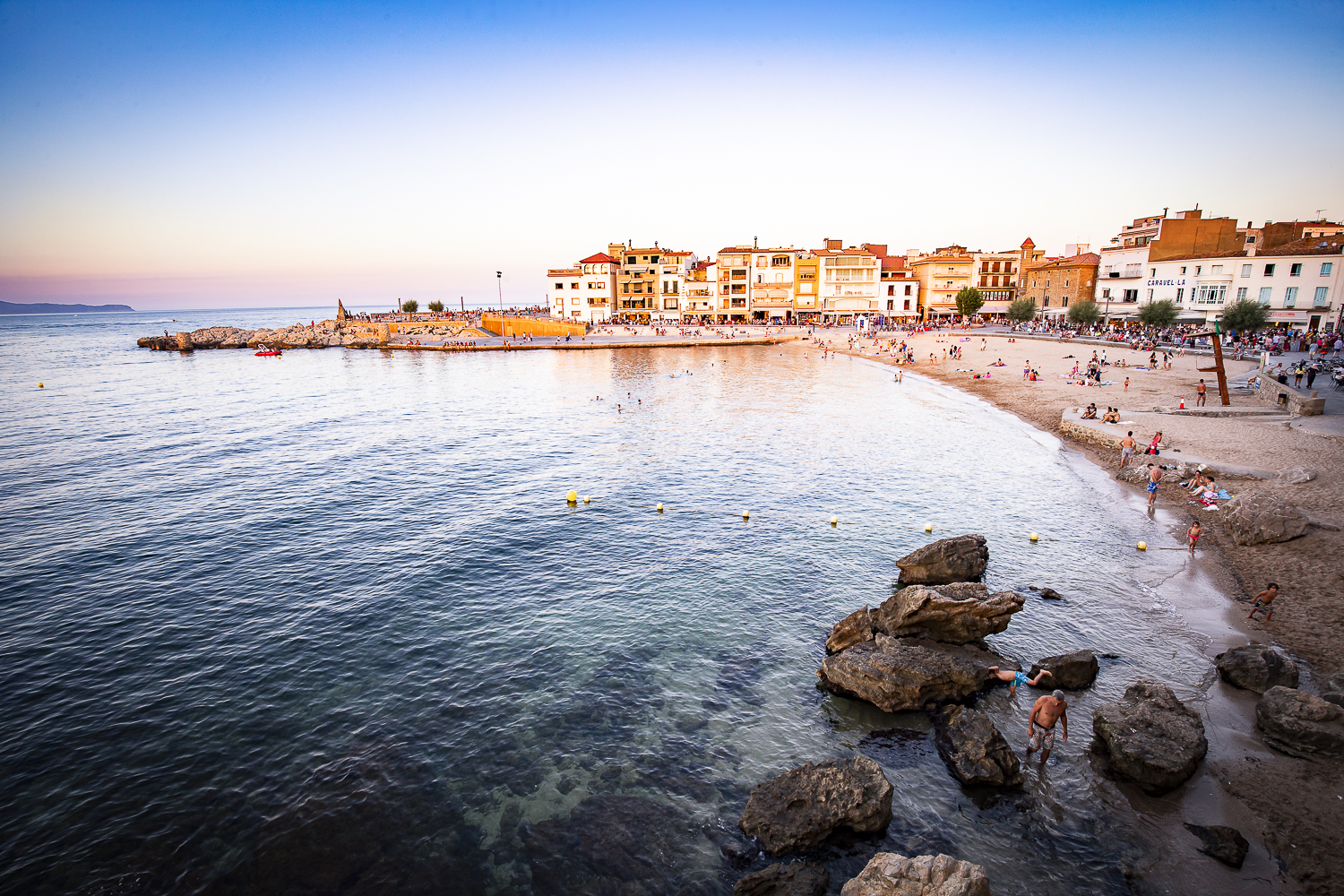

Celler Espelt
Mas Espelt s/n, 17493 Vilajuïga, Girona
El Celler Espelt és un dels referents vitivinícoles de l’Empordà. Situat a Vilajuïga, al peu de la serra de Rodes i amb vistes al mar, el celler combina tradició i innovació en l’elaboració de vins amb identitat mediterrània. L’aposta per la sostenibilitat, la recuperació de varietats autòctones i el respecte pel paisatge converteixen Espelt en un projecte singular que vincula vinya, territori i cultura. El celler acull tastos, visites i activitats que uneixen patrimoni natural i experiències enoturístiques.
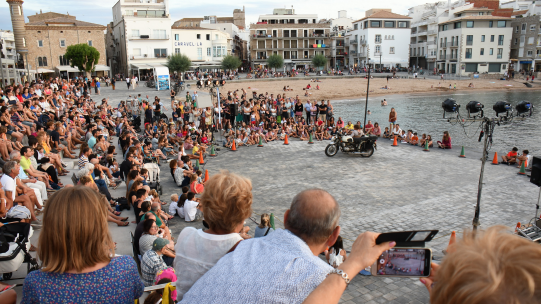
La Riba
La Riba

L'Olivar
Crta. GI-623 km 12, Ventalló (Girona)
La Fundació l’Olivar, ubicada a Ventalló, és un espai dedicat a l’art contemporani en diàleg amb la natura. Creat a partir d’un antic mas envoltat d’oliveres, el centre acull una destacada col·lecció d’escultures a l’aire lliure i projectes expositius que connecten artistes i paisatge. La fundació és també un lloc de residència i creació, que fomenta la investigació artística i les experiències culturals immersives en un entorn únic de l’Empordà.
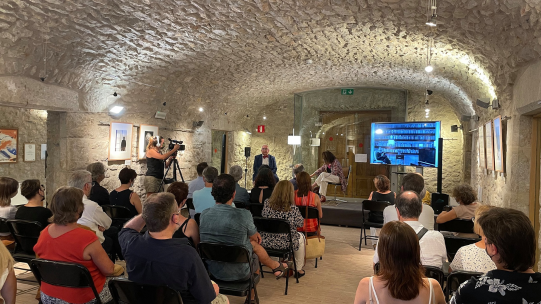
L'Afolí de la Sal
Carrer Alfolí, nº 6 - L'Escala
The Alfolí de la Sal is a historic building built at the end of the 17th century. It was the department store of salt and other goods that arrived by sea when salt was a royal monopoly. From this building, the salt was distributed to the rest of the towns in the interior of Catalonia. The Alfolí was the driving force behind the economic and demographic growth of L'Escala in the 18th century.
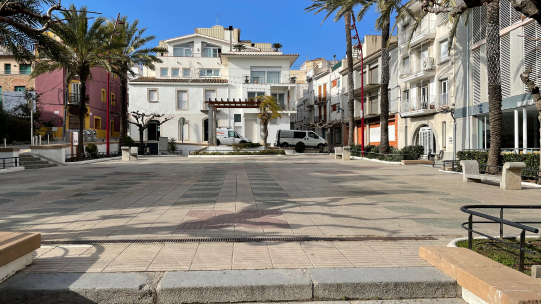
Plaça Víctor Català
Plaça Víctor Català, L'Escala
The square is dedicated to Caterina Albert i Paradís (l'Escala, 1869-1966), known by the nickname of Víctor Català, one of the most important Catalan writers of all time, author of major works such as Solitud. In the square there are some interesting houses such as the Fonda or Can Sureda, from the beginning of the 20th century.
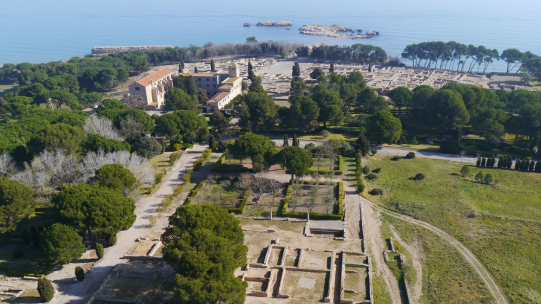
Museu d'Arqueologia de Catalunya - Empúries
MAC Empúries – L’Escala – Puig i Cadafalch s/n
Overlooking the Mediterranean Sea, in an exceptionally beautiful natural setting, lies the archaeological ensemble of Empuries that forms one of the buildings of the Museu d'Arqueologia de Catalunya / MAC. One of the most privileged sceneries of our history. Portal of the entry of the Greek and Roman culture to the Iberian Peninsula, Empúries is the only archaeological site of the Iberian Peninsula, where the rest of the Greek city meets the rest of the Roman city.
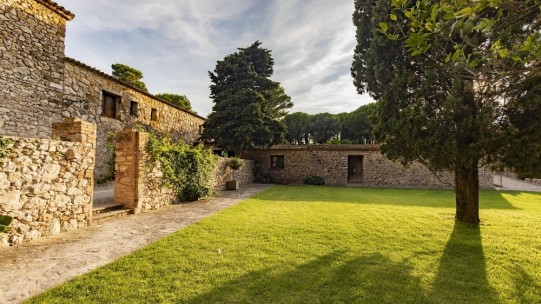
MAC - Empúries / Cloister
Av/ Puig i Cadafalch, s/n - L'Escala
Another of the spaces chosen this year by the Portalblau festival has been the Cloister of the building that houses the museum spaces and services of the headquarters of the Museum of Archeology of Catalonia in Empúries. A building built on the old served convent of Santa Maria de Gràcia, founded in 1606 on an existing hermitage and which was abandoned in 1820 due to the confiscation. The museum's facilities were expanded to show the most relevant finds that today form part of the collections of the Museum of Archeology of Catalonia in Empúries.
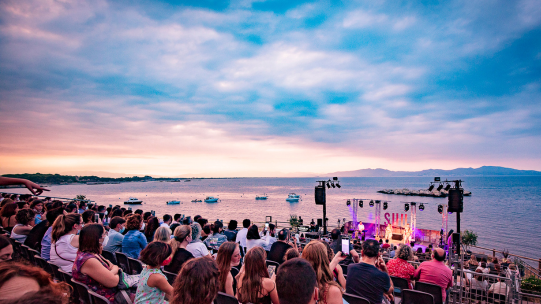
Mar d'en Manassa
Ronda Mar d'en Manassa s/n - L'Escala
Mar d'en Manassa is one of the most precious corners of the coast of La Escala, with unique views and great natural value. If the day is clear, you can see Empúries and the Bay of Roses (one of the 43 Most Beautiful Bays in the World). Mar d'en Manassa is the space chosen to perform some of the concerts because at sunset, the colors dye the landscape and draw works of art and unique experiences.
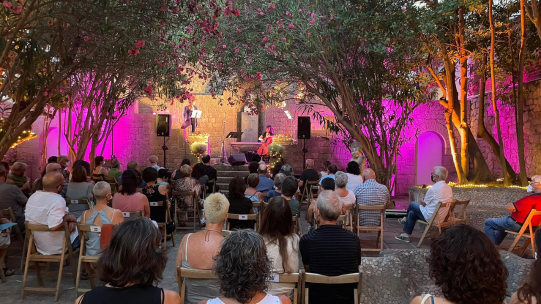
Jardí Clos del Pastor
Passeig Lluís Albert, 11 - L’Escala
House and garden that were donated by Antònia Bartomeu i Baró, from Reus, to the writer Caterina Albert (Víctor Català) in recognition of her literary activity. From 1975 his nephew Lluís Albert had it open to the public as the Víctor Català Museum-Archive.
The building, declared a Cultural Asset of Local Interest, is now owned by L’Escala City Council, and is being rehabilitated, restored and turned into a museum.
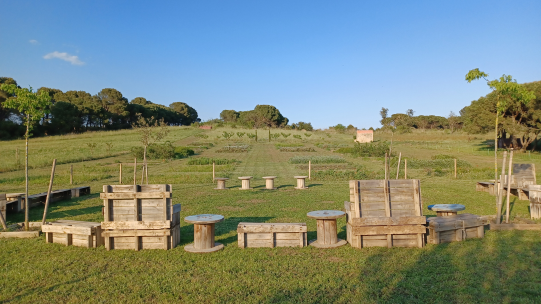
Camp de les Aromes
Camí Vell a les Corts, S/N, L'Escala
The Camp de les Aromes is a place to discover. It is an immersion in a unique environment of aromatic and medicinal plants in the heart of l'Empordà. During the visit, its managers, people committed to the land, offer visitors an experiential, pleasant and fun experience with a variety of proposals designed for all ages.
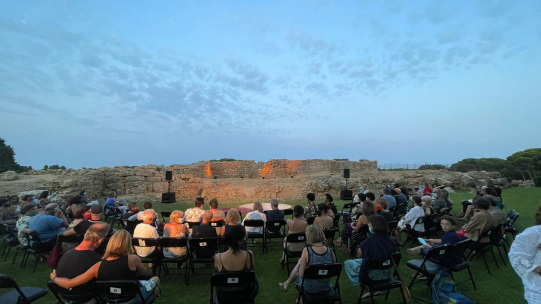
MAC - Empúries / Wall of the Greek city
Av/ Puig i Cadafalch, s/n - L'Escala
During the first half of the 6th century BC, Greek merchants from Phocea settled on a small promontory strategically located at the southern end of the Gulf of Roses, the Palais Polis. The Greek city of Emporion later grew south of the ancient natural bay, becoming a port enclave with a key role in Greek trade in the western Mediterranean. In 218 BC the port of Emporia was used as a point of entry into the peninsula. The Wall was part of the city's defence system.
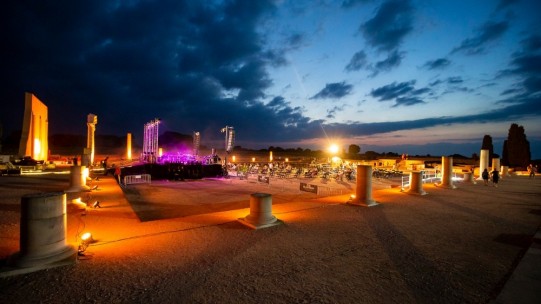
MAC - Empúries / Roman Forum
Av/ Puig i Cadafalch, s/n - L'Escala
Between the 1st century BC and the 2nd century AD, the Roman Forum was the political, religious and at the same time economic center where the main public buildings of the city stood. Buildings like the basilica and the curia, or even the capitoline temple. In this edition of the Portalblau Festival, the Roman Forum will be the chosen space that will be the stage for the most numerous concerts. In this space specially selected for these large-format concerts, surroundings, art and music will make the most magical nights of summer possible.

Cementiri Mariner
Garbí Street, 15 - L'Escala
Located at Garbí street, number 15, it is a jewel of popular Mediterranean architecture in a neoclassical style, with the characteristic niches topped with triangles and whitewashed. It was built in 1835 and consists of an entrance atrium, a second enclosure with a high density of niches and a third with four pantheons. Victor Català was buried in 1966. This set of popular architecture in the neoclassical style, declared a monument in 1974 and currently a Cultural Asset of National Interest, is unique in its category on the Costa Brava.

Moll Grec
Passeig Dr. Pi i Llussà - L'Escala
A majestic construction, 432 meters long and with two thousand years of history between its rocks, this Hellenistic pier reminds bathers that this was the gateway to and from the Greek and Roman civilizations on the peninsula. Iberian.
Under the surrounding water, old structures of this important ancient port are still preserved, much of which was hung on the ground over the centuries.

La Casa del Servei Forestal
Passeig Miranda, 1 - L'Escala
Built in 1910, it is located next to the church of Sant Martí d'Empúries and currently houses the headquarters of the Iberia Graeca Foundation. The main façade has a style that mixes elements of a modernist character. The side and rear façades, on the other hand, open with rectangular galleries, with stained glass windows on the upper floor reminiscent of art deco. It is included in the inventory of the Architectural Heritage of Catalonia.